About us
russky.info is a multilingual website to learn the Russian language online.
General information
This website uses modern didactic materials and presents practical information about life and work in modern Russia is presented.
The project is designed to support the study and popularization of the Russian language, which has the status of a national minority language in three European countries. The majority of immigrants in the EU speak Russian. The knowledge of the Russian language is very important for the development of economic ties with the partners from the post-Soviet states.
Since September 2014, ten partners from seven European countries have joined together to create this project with the support of the EU Commission. This site is developed in nine languages: Bulgarian, Czech, English, German, Lithuanian, Polish, Slovak, Slovenian and Spanish. The partners jointly develop the site, creating fascinating courses and interesting exercises based on modern methods of teaching. russky.info This is an interesting and effective way to learn Russian. On this site all necessary information for studying the Russian language from the elementary level is presented for free. The users have the access to multimedia learning tools, interactive exercises, audio and video materials, texts and quizzes.
The main target audience of the site are the people who are interested in learning the Russian language, culture and traditions of Russia. The site is aimed at a wide audience - the training employees of various qualifications, as well as the schoolchildren, tourists and residents of border regions. A separate component of the course is a business Russian course aimed at development of the partnership in business.
Partners
The project is realised by a group of 10 participants from 7 European countries.
Edukácia@Internet
Slovakia | https://www.ikso.net
The youth organization aimed at promoting the international cooperation and communication around the world through the development of the educational projects, supporting the intercultural learning, and organizing various international cultural and educational events.
Studio Gaus GmbH
Germany | https://www.studiogaus.com
The main field of activity of the agency includes all the key stages of development of the large interactive educational Internet projects, from the concept development, creation of the corporate styles and design to the coordination of these works, development of the linguistic and didactic content of the sites, as well as the direct programming and launching of these projects.
Katolícka univerzita v Ružomberku
Slovakia | http://www.ku.sk
The classical Catholic University Katolícka univerzita v Ružomberku became an open Catholic university on May 10, 2000. The university consists of 4 faculties: the philosophical, pedagogical, theological and the faculty of public health. The Catholic University of Ruzomberok cooperates with more than 30 foreign universities.
Ostravská univerzita
Czech Republic | http://www.osu.cz
Ostrava University was founded in 1991 and from the very beginning the main emphasis was directed to natural and social sciences. It offers a wide range of courses (215 different programs) for the undergraduate, graduate, doctoral degrees and consists of 6 faculties of 2 independent institutes. The number of enrolled students exceeds 10 000. The University participates in many EU projects and the Euro-Asian academic forum, giving people the opportunity to improve their level of knowledge.
Vilniaus universitetas
Lithuania | http://www.vu.lt
Founded in 1579, Vilnius University is the largest, the oldest higher educational institution in Lithuania, including 12 faculties, 7 institutes, 4 inter-faculty centers of education and science, a rich library, a botanical garden and a museum. At the beginning of 2016, the number of students was 20 487, of which approximately 1500 students were enrolled in the Faculty of Philology. The students-philologists of the Vilnius University have the opportunity to study Lithuanian, German, French, Italian and Slavic languages.
Fundacja Novinka
Poland | http://www.novinka.pl
A public organization that initiates the projects in the Central and Eastern European space. The main direction of the projects: intercultural dialogue, international cooperation, digital network development and the innovative cooperation at the local, regional, national, European and global levels.
Chamber of commerce and industry (CCI)
Bulgaria | http://www.cci.dobrich.net
The Chamber of Commerce and Industry (CCI) of Dobrich is a local organization that supports companies and businesses in Dobrich. The main areas of activity of the CCI are: protection of interests of enterprises, support of business projects, exchange of experience, organization of exhibitions and various events, contact with the government and local media.
Inter-kulturo d.o.o.
Slovenia | http://www.inter-kulturo.si
The small Slovenian organization Inter-kulturo specializes in international projects and collaboration in the fields of culture and education, especially regarding linguistics. An additional field of activity is translation projects: Inter-kulturo publishes Slovenian literature translated into other languages, and less known works of world literature in the Slovene language.
Mediaost Events & Kommunikation
Germany | http://www.mediaost.de
The Berlin agency “Mediaost” works in the field of Public Affairs and Public Relations in German-Russian and German-Eastern European projects. Mediaost organizes and PR-supports the international projects of the Senate of Berlin, the Ministry of Culture of Russia and other government institutions. In addition, the agency works in the Eastern European countries as a competent partner in the field of film production and promotion of the Internet resources.
Statny pedagogicky ustav
Slovakia | http://www.statpedu.sk
The State Pedagogical Institute of Bratislava is the oldest and the largest scientific research institute in the field of pedagogy in Slovakia. The Institute works in close cooperation with the Ministry of Education, Science and Sport of the Slovak Republic. The main activity is aimed at development of the state pedagogical programs for all levels of education. The students can choose the following foreign languages: English, German, Russian, French, Italian, Spanish.














